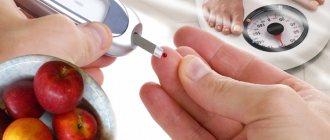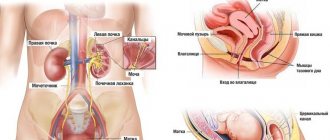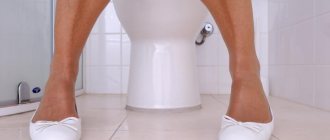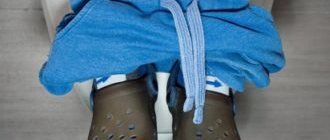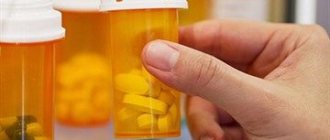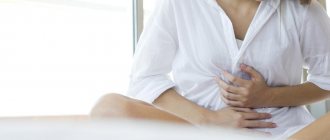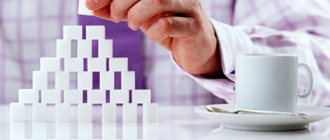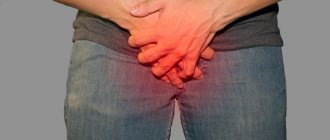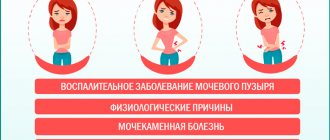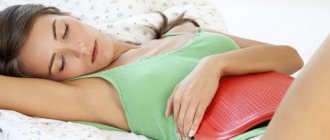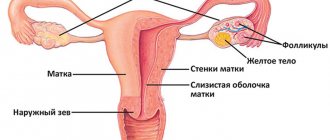What is pollakiuria
Frequent urination without increasing the volume of urine produced is called pollakiuria. A healthy adult excretes from 700 ml to 3 liters per day, depending on diet, metabolic rate and lifestyle. During the day, a man urinates about 6 times. At night, the urge occurs only if you drink plenty of fluids before going to bed. Normally, the bladder stretches, the nervous system provokes awakening only when it is full.
Frequent urination can be of different types:
- Nocturia – frequent urination only at night;
- Dysuria – frequent urges accompanied by pain;
- Polyuria is a frequent urge associated with pathologically intense urine production that is not due to normal physiology (not due to a large amount of fluid drunk or exposure to diuretics).
Urologist, dermatovenerologist Sergey Gennadievich Lenkin talks about pathological types of urination.
Normally, with physiological pollakiuria, the urge ends with full urination, the pressure of the stream is normal, there is no pain. A weakening of pressure is the norm only in cases where you have to endure for a long time. The reason is that from prolonged stretching of the walls of the bladder, the nerve endings “get tired” and do not immediately work when urination finally becomes possible. Then you have to strain your muscles to expel urine.
Another variant of physiological pollakiuria is cold stress. Many people have noticed this peculiarity: if their feet are cold, then the urge to urinate becomes more frequent. Cold causes contraction of smooth muscles throughout the body (a good example is the penis in cold water). The same thing happens to the walls of the bladder, as a result of which its volume decreases, and accordingly, its storage capacity also decreases. Similarly, frequent urges occur during times of severe stress, to which the muscles also react with spasms. For some men, the bladder sphincter also fires during orgasm.
Treatment
Difficulty urinating is not an independent disease . This is a symptom that will go away only after treatment of the disease that caused it.
If urination is very difficult or has stopped completely, emergency assistance in the form of catheterization is required. To drain urine, a cystostomy is applied - a hole is made in the peritoneum, into which a thin tube is immersed. To prevent infection, antibiotics are prescribed: Furagin, Levomycetin, Furadonin.
The drug "Furadonin" is a broad-spectrum antimicrobial agent, a derivative of nitrofuran. It has a bacteriostatic and bactericidal effect against urinary tract infections. Price in pharmacies from 58 rubles.
The difficulty of treating urethral stricture lies in the fact that instrumental expansion of its lumen (bougienage, tunnelization) does not provide long-term results. Scar tissue and narrowing appear again, making it difficult to urinate. In case of extensive damage, the urethra will have to be restored; this can only be done by a very experienced surgeon, a specialist in the field of reconstructive plastic urology. Sometimes you have to take a piece of the mucous membrane of the cheek and use it as a patch. There will be no defect, the patient will forget about it in a week.
Stones stuck in the urethra, depending on the distance from the urethra, are either surgically removed or pushed into the bladder. There they are crushed or removed surgically (cystolithotomy is performed).
When the mouth of the urethra is narrowed, it is dissected (meatotomy); in case of phimosis, the foreskin is cut.
If urination is difficult due to prostate cancer, abscess or adenoma, then to alleviate the patient's condition, cystostomy, catheterization with an elastic urethral catheter are used, and anti-inflammatory therapy is prescribed.
Weak urine pressure, a thin stream may be a sign of contracture (sclerosis) of the bladder neck. In such cases, catheterization is used, then cervicoplasty or TUR is performed.
Neurogenic difficulty urinating is corrected using periodic catheterization, electrical stimulation of the bladder muscles, and blocking the pudendal nerves. In extreme cases, TUR of the bladder neck and reinnervation (restoration of nervous regulation) are used.
At home
Treatment at home can only be done after a medical diagnosis. For cystitis or urethritis, a good auxiliary remedy is “Fitolysin” paste, a decoction of lingonberry, sage, and chamomile leaves. A good antiseptic and anti-inflammatory agent are beekeeping products: tincture of seaweed, tincture of propolis. Irrigation of the urethra with Miramistin or Protargol is useful.
Bee infusion
If prostatitis is diagnosed, then you can effectively strengthen the immune system of the gland with the help of rectal suppositories “Vitaprost”, “Prostatilen”. There are many positive reviews about these drugs on thematic forums. Suppositories with Tambukan mud and propolis (“Tambuil”) help relieve swelling of the prostate, thereby freeing the urethra.
See also: Complex treatment of prostatitis at home.
Causes of frequent urination in men
Pathologically frequent urination most often occurs due to infectious inflammation of the genitourinary organs: cystitis, urethritis, prostatitis. All these diseases have in common not only frequent but also painful urination. The pain can be localized (only in the area of the prostate, bladder or urethra) or diffuse (along the entire length of the urethra from the penis to the lower abdomen).
Due to infectious irritation of the walls of the bladder, the receptors respond inadequately to signals from the nervous system. As a result, after bowel movement the urge does not subside; it is constant, debilitating, accompanied by pinching and burning in the urethra. The urine becomes cloudy, white and transparent threads, and sometimes blood, are visible in it.
Frequent painful urination can occur after a man has cold feet. This means that cold stress triggered the awakening of a dormant infection. The same thing happens after drinking alcohol, since it is also a powerful trigger for chronic urinary tract infections.
Frequent urination can be a symptom of overactive bladder (OAB) with urge urinary incontinence - the urge occurs frequently and so suddenly that there is no time to react. This hyperactivity of the ejector muscle (detrusor) is caused by neurological disorders of the regulation of urination, pathological changes in the muscle against the background of hyperplasia or inflammation.
Overactive bladder is a clinical syndrome that defines urinary urgency, which may be accompanied by urinary incontinence (a man does not have time to get to the toilet), frequent urination and urination at night.
If the problem is caused by prostatitis (usually in men after 50-60 years), then the stream of urine becomes thin and intermittent. To empty the bladder, you have to strain your pelvic muscles. The reason is the narrowing of the prostatic part of the urethra due to its compression by edema. With adenoma or cancer, instead of swelling, the lumen of the urethra is compressed by the tumor. There may be no pain, but urination becomes more frequent due to damage to the receptor apparatus of the bladder due to stretching of the walls by residual urine.
There is also such a thing as postcoital cystitis - frequent and painful urination for some time after sex. Usually women suffer from this, but sometimes the pathology also affects men. The cause may be a chronic infection, but often nothing is found during examination.
Frequent urination may be neurological in nature. In this case, the problem is not caused by infectious inflammation, but by damage or an inadequate response to the nerve endings of the bladder. This also occurs against the background of diabetes mellitus and is called diabetic cystopathy, or neurogenic bladder. The pathology develops slowly, starting with a decrease in the number of urinations and the accumulation of residual urine. Then, in a favorable environment, pathogenic microorganisms begin to develop, causing inflammation.
Dermatovenerologist, allergist-immunologist Vladimir Ilyich Devyatkin tells what diseases cause frequent urination in men
Partly physiological can be called frequent and painful urination after penetration of various diagnostic and surgical instruments into the urethra. Mechanical damage occurs, which, depending on the scale, will heal up to 10 days.
Damage to the tissues of the bladder and urethra also occurs due to urolithiasis, when a stone gets stuck in the cervical area. Such cases are characterized by urination in small portions mixed with blood.
Frequent urge and even urinary incontinence often occurs in older men due to weakening of the pelvic muscles, coupled with chronic prostatitis and hyperplasia.
Constant urination at night
The causes of frequent urination may not be infectious diseases. So prostatitis occurs due to the inflammatory process of the prostate gland. This happens during a bacterial infection.
The disease can manifest itself at a young age. If you do not pay attention to the symptoms of prostatitis, it can become chronic. Then the man will be accompanied every night by unpleasant sensations for a long time. Patients sometimes complain of slight urine output. The urge to go to the toilet will be frequent, but the action will be unproductive.
Piluria can occur due to pyelonephritis. Inflammation of the kidneys occurs, which interferes with the formation of urine. If you do not start timely treatment, it can develop into a form of renal failure. During pyelonephritis, swelling, pain and frequent urge to go to the toilet are observed. Diagnosis of the disease occurs using general tests. They detect changes in urine and blood.
Another disease associated with frequent urination is cystitis. This causes inflammation of the bladder. The occurrence of this disease in men is rare. Cystitis develops after hypothermia of the body or infection penetration into the genitourinary system. Along with frequent trips to the toilet, formations from the urethra may occur. Infection of the body is accompanied by a general painful condition and a rash may appear in the groin area.
Salt diuresis or urolithiasis can force a man to frequently visit the toilet at night. Stones in the urine lead to irritation of the urethra. They cause a false urge to urinate. Drinking plenty of water helps remove stones that have formed.
Piluria occurs due to nervous or psychological factors. This urge develops during severe stress or excitement. They affect the receptors of the nervous system that are responsible for the urinary system. Sexually transmitted infectious diseases can cause inflammatory processes. The urethra is especially affected. Discharge appears from it. Inflammation causes frequent urination, pain and cramping. Infections can progress to urethritis, gonorrhea, syphilis and chlamydia.
In addition to infectious diseases of the genitourinary system, the cause of piluria can be a man’s age.
Additional symptoms
Physiological and neurogenic pollakiuria is not accompanied by pain. Discomfort is always a sign of damage to the epithelial lining of the urethra. Severe burning in the urethra, discomfort in the head will occur with cystitis and urethritis. During the acute phase, the temperature may rise.
Isolated prostatitis is characterized by discomfort in the lower abdomen and perineum. The pain can radiate to the legs, testicles, and sacrum. It occurs during ejaculation and remains for some time after it. If urination problems are caused by kidney inflammation, the pain will be localized in the lumbar region. General weakness and swelling are also characteristic.
Diabetes mellitus and diabetes insipidus are characterized by excessive urination against the background of constant thirst and drinking large amounts of liquid, itching of the skin, and general weakness. Urine is almost colorless.
Maintain healthy tone
Disorders of the genitourinary organs in elderly men 60 years of age or more can be prevented if, after a period of exacerbation associated with frequent urination, simple rules and advice are followed:
- adhere to healthy habits in your daily routine that contribute to a healthy lifestyle: health-improving exercises, a balanced diet, active recreation in nature, maintain a long night's sleep regimen, maintain a positive psycho-emotional state: optimism, cheerful mood, goodwill, self-control;
- following the recommendations and requirements of a urologist, regularly monitor the condition of the organs of the urinary system, recording (fixing) their indicators: color, smell, volume, quantity;
- anticipating the discomfort associated with the lack of a toilet room, during planned trips, business meetings, meetings, check in advance where there is such a place nearby;
- on the eve of bedtime, do not drink copious amounts of liquid;
- first, before taking a prescribed new drug, find out what diuretic properties it may have;
- carefully and with caution eat foods that are known for their diuretic effects: melons, watermelons, green tea, etc.;
- in unpredictable episodes of urinary incontinence, use special pads for men or diapers.
Diagnostics
Activities carried out as part of the diagnosis of frequent urination:
- Anamnesis collection, analysis of a pre-filled urination diary.
- General and Nechiporenko urine analysis, uroflowmetry.
- General blood test, sugar, hormones.
- Urethral smear, prostatic juice test using PCR.
- Ultrasound of the genitourinary organs.
- Survey and excretory urography (x-ray of the kidneys after administration of a contrast agent).
- Cystography (bladder x-ray after contrast).
- Urethrography (x-ray of the urethra with contrast).
- CT, MRI.
Urologist and dermatovenereologist Sergey Gennadievich Lenkin tells us what diseases can be detected by taking a urine test in men
Based on the diagnostic results, the patient can be redirected to a nephrologist, neurologist, and in some cases to a psychotherapist.
Frequent visits to the toilet without pain
Frequent urination without pain occurs due to prostatitis. At the beginning, there may be no obvious signs and symptoms. They can arise under favorable circumstances. Another sign is the age category of men. Urine production in older people often occurs at night or in the morning.
Emptying the bladder occurs painlessly in the case of an emotional factor. The reason for this is normal anxiety.
Treatment of frequent urination in men
Treatment methods for pollakiuria depend on what disease is causing it. In case of urolithiasis, procedures are carried out to crush or remove stones. Infectious inflammations are treated with antibiotics selected in accordance with the results of sensitivity testing.
For chronic cystitis, auxiliary therapy methods are effective:
- Electrophoresis. Ions deliver the active substances of medications to the mucous membranes of the bladder and enhance their effectiveness.
- Inductothermy is the heating of the body by electromagnetic waves. The procedure improves blood and lymph flow, relieves swelling of the mucous membranes.
- Magnetotherapy.
- EHF therapy is the effect of high-frequency electromagnetic pulses on tissues. The procedure has an anti-inflammatory effect.
- Ultrasound therapy.
Drugs for the treatment of overactive bladder (OAB)
To normalize urination in hyperplasia, 5-alpha-reductase inhibitors and alpha-blockers are prescribed. If necessary, surgical methods are used: transurethral resection or open prostatectomy.
For the treatment of prostatitis, in addition to antibiotics, anti-inflammatory and immunomodulating suppositories are prescribed: Vitaprost, Prostatilen, Prostopin, Longidaza, ichthyol.
See also: 7 approaches to treating prostatitis.
Vitaprost suppositories are a drug of animal origin used for diseases of the prostate gland and bladder. Price from 930 rub.
In case of diabetes, the first step is to stabilize blood glucose levels. To normalize urination, M-anticholinergics and lipoic acid are prescribed. For diabetes insipidus, take Minirin and Carbamazepine.
We have reviewed the best pills for treating frequent urination in men.
At home
At home, the bladder can be “calmed” with decoctions of medicinal herbs: orthosiphon stamen, chamomile, sage, lingonberry leaf. Standard preparation scheme: pour a tablespoon of raw material into a glass of boiling water, leave until it cools. Beekeeping products have a good anti-inflammatory effect: propolis, honey with royal jelly, dead bee tincture.
A course of taking the “Fitolysin” paste solution helps relieve inflammation of the genitourinary tract. It enhances the effect of non-steroidal anti-inflammatory and hypoglycemic drugs, stimulates urination, removing microbes from the bladder.
Phytolysin is a combined herbal preparation that has a diuretic, anti-inflammatory, and antispasmodic effect. Price from 421 rub.
Warming up is allowed only with the permission of a doctor. In some cases, such procedures provoke the proliferation of pathogens.
Elderly people are recommended to perform Kegel exercises and squats to strengthen the pelvic floor as part of the treatment for frequent urination.
Reviews about the drugs
To eliminate frequent urination due to prostatitis, urologists most often prescribe Omnic, motivating their choice with the fewest side effects. Below are reviews from patients and doctors about this drug.
Reviews of drugs for the treatment of frequent urination in men at night caused by OAB:
Antipsychotic medications help some, but they have serious side effects.
Preventing frequent urination in men
Measures to prevent pollakiuria:
- Timely treatment of genitourinary system infections.
- Periodic checks of the prostate gland. This point is especially important for men after 45 years of age.
- Avoid hypothermia and pelvic injuries.
- Controlling blood sugar in diabetes mellitus.
- Timely emptying of the bladder. Prolonged stretching of the walls leads to their atrophy and damage to nerve receptors.
Doctors strongly recommend that men over 45 years of age regularly perform exercises to strengthen the pelvic muscles, without waiting for their natural weakening.
Exercises to strengthen the pelvic floor muscles
Prevention measures
To prevent the development of urinary disorders, a number of rules should be followed:
- you need to adhere to an active and healthy lifestyle. This includes proper nutrition, daily walks in the fresh air, exercise, hardening;
- You should have regular sex life with one regular partner;
- during sexual intercourse, in order to prevent infection with sexually transmitted infections, you need to use contraceptives;
- when diseases of the urinary system are detected, timely treatment is required;
- Hypothermia should be avoided.
If you undergo annual preventive examinations, you can identify the problem at an early stage, which will speed up recovery and reduce the likelihood of complications.
Clinical picture
The man’s complaints depend on the etiological factor in the development of intermittent urination. Each specific pathology is characterized by a specific symptom complex. However, there are manifestations that are observed in all men with intermittent urination. These include:
- Increasing the time interval between the beginning of urination and the immediate appearance of urine;
- Weakening of the urine stream;
- The stream during urination is intermittent, can bifurcate, splashing is typical;
- Urine is released vertically downward;
- Sometimes urine is released in drops;
Before you see a doctor, analyze your sensations during urination. Pay attention to the presence or absence of pain and burning. Carefully examine the excreted urine for mucous, purulent or bloody impurities. This information is very important for diagnosis and further treatment tactics.
